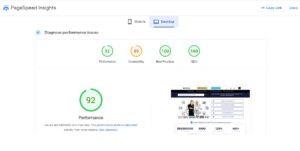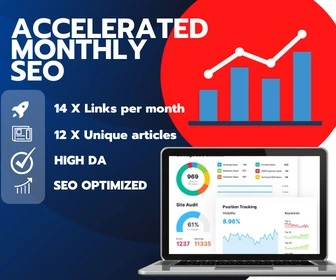When it comes to SEO tools, SEMrush, Ahrefs, and Moz are three of the most widely recognized platforms. Each of these tools excels in different areas, making it crucial to understand their strengths and how they cater to your specific SEO needs. Here’s a breakdown of their features:
SEMrush
SEMrush is an all-in-one marketing suite that offers tools for SEO, PPC (Pay-Per-Click), social media, content marketing, and more. It is particularly favored by marketing teams who need a wide array of tools beyond SEO.
- Strengths: SEMrush shines in its versatility. In addition to SEO, it includes features for competitor analysis, advertising research, and content marketing. Its keyword tracking capabilities are comprehensive, and it provides in-depth insights into paid search campaigns.
- Who Should Use It: Marketers who need an all-in-one platform to manage SEO, PPC, social media, and other marketing activities.
- Drawbacks: While SEMrush covers a broad spectrum of digital marketing activities, it may not dive as deeply into SEO-specific metrics compared to Ahrefs.
Ahrefs
Ahrefs is primarily known for its robust backlink analysis and SEO metrics. It is often preferred by SEO professionals and digital marketers who are looking to improve organic traffic and link-building strategies.
- Strengths: Ahrefs excels in providing detailed insights into backlinks, keyword research, and competitor analysis. Its user interface is clean and intuitive, making it an excellent choice for SEO-focused tasks like link building and ranking analysis.
- Who Should Use It: SEO professionals who need advanced tools for backlink analysis, keyword research, and organic search performance.
- Drawbacks: While Ahrefs is incredibly strong for SEO, it lacks some of the broader marketing features found in SEMrush, like PPC or social media analytics.
Moz
Moz has established itself as a more beginner-friendly SEO tool, offering easy-to-use features for those just starting out in SEO. It provides access to tools for keyword research, site audits, and rank tracking, but it is not as in-depth as SEMrush or Ahrefs.
- Strengths: Moz is best for those looking for a user-friendly platform with a solid foundation in SEO essentials, such as site audits, keyword suggestions, and rank tracking.
- Who Should Use It: Beginners or small businesses just getting started with SEO. Moz’s learning curve is more forgiving, making it ideal for users who need an intuitive interface.
- Drawbacks: Moz’s depth in areas like backlink tracking or keyword research is not as advanced as Ahrefs or SEMrush, which could be limiting for professionals.
Step-by-Step Guide: Using SEO Tools from Scratch
Now that we’ve compared the tools, let’s dive into a practical guide for getting started with these platforms. While the steps apply to all three—SEMrush, Ahrefs, and Moz—specific features may vary slightly depending on the platform.
1. Set Up an Account and Configure Settings
Before exploring the depth of your chosen tool, the first step is to sign up and tailor the platform to your needs.
- SEMrush: After creating an account, configure your project by entering your website domain and selecting competitors. Set up rank tracking and add your target keywords to start monitoring their performance.
- Ahrefs: In Ahrefs, input your website’s domain in the Site Explorer. This tool gives an overview of your website’s SEO performance. Set up notifications for your backlinks and keywords so you can receive regular updates.
- Moz: Moz’s setup is quite simple. Once signed in, use Campaigns to enter your domain and competitors. Set up rank tracking for your chosen keywords and establish your reporting frequency.
2. Conduct Keyword Research
Keyword research is the foundation of any SEO campaign, allowing you to identify which terms to target for higher rankings.
- SEMrush: Use the Keyword Magic Tool to uncover thousands of keyword suggestions. Filter them by search volume, keyword difficulty, and intent to find the best ones for your content.
- Ahrefs: Head over to the Keywords Explorer, where you can input a keyword and see global search volume, keyword difficulty, and top-ranking pages. Ahrefs also provides keyword suggestions based on your target phrase.
- Moz: Use Keyword Explorer in Moz to find keywords and get a detailed analysis of their difficulty, search volume, and potential to rank. Moz also provides a “Priority” score to help you decide which keywords to focus on.
3. Analyze Competitor Strategies
Understanding your competition is critical in SEO. You need to know which keywords they rank for, where they’re getting their backlinks, and how their content strategy is structured.
- SEMrush: With the Competitor Analysis tool, you can input a competitor’s domain to see which keywords they rank for, their organic traffic trends, and their top-performing content. This helps you understand where to focus your efforts.
- Ahrefs: Ahrefs’ Site Explorer lets you input a competitor’s URL to see their top pages, backlinks, and organic search traffic. The Content Gap tool is especially useful for finding keywords that your competitors rank for, but you don’t.
- Moz: Moz offers Link Explorer, which allows you to check a competitor’s backlink profile. You can also use Competitor Research to analyze the keywords and rankings of rival websites.
4. Perform a Site Audit
A site audit helps you understand the health of your website and highlights areas that need improvement for SEO purposes.
- SEMrush: Use Site Audit to crawl your website and identify technical SEO issues such as broken links, slow page load times, and duplicate content. The tool provides a health score and a list of actionable recommendations.
- Ahrefs: Ahrefs’ Site Audit feature gives you an in-depth report of technical SEO issues, from missing meta tags to crawl errors. It ranks issues by importance, helping you prioritize fixes.
- Moz: The Site Crawl feature in Moz identifies critical SEO issues, from missing alt tags to page speed problems. It also tracks the changes you’ve made, so you can measure improvements over time.
5. Track Backlinks and Build New Links
Backlinks remain one of the strongest signals for search engines to determine the authority of a site. Each of these tools offers robust features for tracking and acquiring backlinks.
- SEMrush: SEMrush’s Backlink Analytics helps you discover new link-building opportunities by analyzing your competitor’s backlinks. Use the Backlink Audit tool to identify toxic backlinks and disavow them.
- Ahrefs: Ahrefs is known for its Backlink Checker, which is one of the best in the industry. You can track your own backlinks, find broken links, and see where competitors are earning their links. Use the Link Intersect tool to identify sites that link to your competitors but not to you.
- Moz: Moz’s Link Explorer is a solid tool for tracking your backlink profile. It provides a Spam Score to help you identify potentially harmful links and take action.
6. Monitor Performance and Optimize
SEO is an ongoing process. After implementing your strategies, monitoring your performance and optimizing over time is essential to long-term success.
- SEMrush: The Position Tracking feature allows you to monitor your website’s rankings for specific keywords over time. You can also set up custom reports to track your SEO performance across different devices and locations.
- Ahrefs: Ahrefs’ Rank Tracker lets you monitor your rankings daily or weekly. You can see how your keywords are performing globally or in specific regions, helping you make informed optimization decisions.
- Moz: Moz’s Rank Tracking allows you to track how your keywords are performing and alerts you when rankings change. Moz also offers customizable reports, helping you keep track of your overall SEO health.
Conclusion
Each SEO tool—SEMrush, Ahrefs, and Moz—offers unique strengths and features, but the steps to using them remain consistent. Whether you’re conducting keyword research, analyzing competitors, or tracking backlinks, these platforms provide essential data to help you grow your online presence.
If you’re a general digital marketer, SEMrush may be the most comprehensive choice. If you’re an SEO specialist focused on organic search and backlinks, Ahrefs will likely serve you best. For beginners or small businesses, Moz provides a more accessible entry point into the world of SEO.








